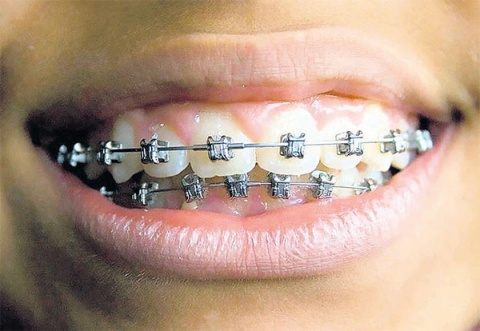
Many people use the term 'dentist' loosely to describe someone who cares for teeth. However, there is an area of specialisation in dentistry called orthodontics, and while the two professions certainly have similarities, orthodontics is a specific type of dental care. An orthodontist specialises in a section of dentistry dealing mostly with the straightening of teeth, diagnosing and fixing overbites, occlusions, misalignment, jaws and overcrowded mouths. After they have diagnosed the problem, they try to solve the issue with the method best suited to the problem.
When most people think of orthodontic treatment, they don't think 'fun'. The results can be fun, and having straighter teeth can make you more confident, but the process of getting there can sometimes be tedious.
WHAT THE WORK INVOLVES?
A typical day for an orthodontist in helping people with dental problems might involve:
• Performing dental exams.
• Ordering X-rays and taking plaster moulds of teeth.
• Performing consultations.
• Treating patients with skeletal and periodontal problems, cleft lips/palate or facial abnormalities.
• Supervising and instructing orthodontic technicians and assistants.
• Creating custom-treatment p ans.
• Fitting patients with corrective braces or devices.
• Helping patients with the alignment of their teeth.
• Improving patients' bite.
As an orthodontist, you will be required to monitor a patient's progress and make adjustments if necessary.
Most orthodontists work an average of four to five days per week but the number of hours daily may vary. If you have your own practice, you can schedule appointments to suit your work style.
Orthodontists can require anywhere from a few months to a few years of treatment to fix teeth, depending on the dental problem; a mouth with an overbite and large gaps can take up to four years to correct.
WHO IS THIS CAREER FOR?
As an orthodontist, you will need to have problem-solving skills and great manual dexterity, since you will be working in small, confined spaces. In addition, you will need to possess good judgment, good eyesight and good communication skills.
WHAT CAN I EARN?
As an orthodontist, you can earn a medium- to high-level salary, especially if you build a good reputation for your expertise or work privately in your own business.
HOW DO I QUALIFY?
Do the sciences in secondary school. After the four-year university degree, you will move on to dental school and then make orthodontics your area of specialty.
WHO OFFERS TRAINING IN JAMAICA?
• Mona School of Dentistry (UWI)
• Caribbean School of Medical Sciences
• College of Oral Health Services (U Tech)
*Whereas dentistry is a fairly common major, you may have to look further afield to specialise in orthodontics.
Continue reading for more on exciting careers for now and the future. Send your comments and suggestions on what you want to know more about to Angela deFreitas, general manager of CHOICE Career & Education Advice. Email: info@ choicesonlinejm.com.
Information provided by CHOICES Career & Education Advice

